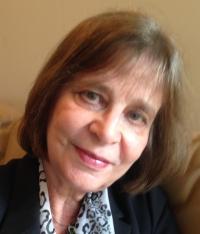 Dear colleagues,
Dear colleagues,
Just over a year ago we heard the first news of a new virus, Covid-19, having been detected in the United States. Since then, our lives have changed radically. Terrible loss of life, terrible suffering both physical and economic have marked this past year. But for many of us it has also been a year of resilience and solidarity. In my mind two words have been swirling around in the last few days: precariousness and connectedness. And the date 1468. Why? Because this is the date at the opening of Robert Harris’ recent novel, The Second Sleep. (If you’ve read it skip the next few sentences.) I generally don’t like historical novels but make an exception for historical mysteries. So here is a young priest riding through a dark medieval landscape in Wessex charged by his bishop with the simple mission of taking care of the burial of a deceased parish priest – who may have been murdered. Nosing around the late priest’s bedroom he finds a collection of old artifacts, including “one of the devices used by the ancients to communicate” marked with “the ultimate symbol of the ancients’ hubris and blasphemy – an apple with a bite taken out of it.” We soon learn that the date 1468 refers to the post-apocalyptic era and that 800 years ago a civilization relying on things like “flying machines” and “clouds” to store information had been brutally extinguished. In this new era, it is no longer allowed to investigate the past. We medievalists would break the law with our work. But why did this book make the terms precariousness and connectedness swirl around in my head?
This last year demonstrated the precariousness of our world. As Clare Clark put it in her Guardian review of The Second Sleep, Harris’ new dark middle ages illustrate “the consequences of our flagrant disregard for the existential perils of our own era.” Several articles in the terrific January 2021 issue of Speculum speak to some of these past and present perils. Among many other things, the pandemic forced us to rethink connectedness. No more chats with colleagues in the hallways, no more buzz at the end of a provocative lecture, no more walking into a classroom and feeling the students’ energy. At the Medieval Academy we managed to stay connected, via Zoom (a big thank you to all who were involved in our outstanding webinars!) and e-mail, but these are means of communication dependent on a well-functioning power grid and satellite connections. Not only are these means technologically precarious but not everyone has access to them. Some of the most poignant images from this last year were those of students struggling to stay connected to their education. Think for example of those of wifi-less students trying to do their homework in a parking lot, in the backseats of cars, using a supermarket’s wifi. These images will stay with me for a long time, as will so many others from 2020. In conclusion, in a time of continuing isolation and fear, and polarization and inequity, the Medieval Academy of America is all the more important as a community that supports connections not only among scholars but also through public outreach and advocacy within the larger world. I wish you all continuing strength to meet the challenges ahead, but also a renewed sense of solidarity and purpose, as we work as medievalists to learn lessons from the past that will help us work for the common good.
Renate Blumenfeld-Kosinski, President
Medieval Academy of America



